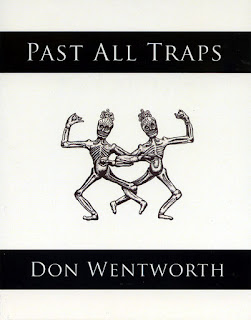
Being of a certain age and musical persuasion, the first version I heard and fell in love with of this song was by the Rolling Stones. Rufus Thomas, however, wrote it, sang it, and had a top ten hit with it and it is his song all the way. So, for purists everywhere, here's the original:
The literary connection in this one is the nursery rhyme "Mary, Mary, Quite Contrary," the lyrics of which he beautifully inserted wholesale into his song.
Mary Mack dressed in black
Silver buttons all down her back
I know, 'cause I love her so
She broke her needle now she can't sew
Walkin' the dog
Walkin' the dog
Now if you don't know how to do it
I'll show you how to walk the dog
Ask my mama for fifty cents
To see the elephant jump the fence
It jumped so high it hit the sky
Never got back 'til the fourth July
Walkin' the dog
Walkin' the dog
Lord, if you don't know how to do it
I'll show you how to walk the dog
Mary, Mary quite contrary
How does your garden grow
You got silver bells and little white shells
Pretty maids all in a row
Walkin' the dog
Walkin' the dog
Well if you don't know how to do it
I'll show you how to walk the dog
Ask my mama for fifty cents
To see the elephant jump the fence
It jumped so high it hit the sky
Never got back 'til the fourth July
Walkin' the dog
Walkin' the dog
Well if you don't know how to do it
I'll show you how to walk the dog
Mary, Mary, quite contrary,
How does your garden grow?
With silver bells, and cockle shells,
And pretty maids all in a row.
Historically there are lots of explanations for the rhyme; Wikipedia puts forth a parcel. In any case, it makes it into the LitRock pantheon by virtue of the rhyme, whatever the "true" story behind it.
The last line "and pretty maids all in a row" was used to continue a violent interpretation of the rhyme in a Roger Vadim film concerning a serial killer called "Pretty Maids All in a Row."
The first two verses, "Mary Mack" and "Ask my mama" also originate somewhere else - a song used in a clapping game, which, according to Wikipedia, has many variations. The clapping game also was used as a jump rope song.
Which brings us to the chorus (and title): though I've seen a lot about the song here and there on the net, including some scurrilous interpretations of the title, the fact is that this song was one of many popular songs named after or coining a term for a particular type of dance popular in the music of the time.
The one obvious fact I've seen nowhere on the net is how Thomas came up with the idea to use lyrics from a nursery rhyme and a song that originated in a children's clapping game. But when you think about it, it's common sense.
What would a songwriter out walking his dog be most likely to see (and hear) in the early 60s on the streets of America - children playing jump rope, for which they used a wide variety of old nursery rhymes and clapping games passed down from generation to generation.
Now, where is that jump rope app when I need it most (when I typed this words, I was being facetious - guess I should have known better)?
------------------------------
a long day--
the dog and the crow
quarreling
Issa
translated by David G. Lanoue
best,
Don
Send a single haiku for the Wednesday Haiku feature. Here's how.
Go to the LitRock web site for a list of all 128 songs


























.jpg)












